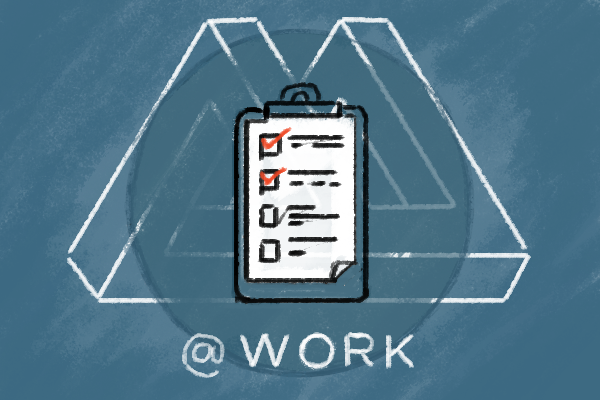Will you follow through? The devil is in the details
Project managers have a lot of details to worry about. Some are responsible for managing strategic plans, others for managing product plans, hiring plans, or customer projects. These are big, demanding jobs that entail excessive communication on every level. It is a constant effort to stay on top of communicating priorities, planning for resources, documenting requirements, figuring out dependencies, avoiding distractions, and making sure everyone on the team is meeting their goals. When each contributor is playing their part and following through, running a team can be symphonic. Occasionally a red flag goes up and that’s when detail anxiety sets in.
What is detail anxiety?
If you’ve ever managed a project, you’ve dealt with “detail anxiety,” that sinking feeling that important details will be overlooked. In most large-scale projects there are many stakeholders, many contributors and a host of other factors at play. When team members aren’t synchronized, detail anxiety rears its ugly head. Managers often deal with detail anxiety by turning to micromanagement.
No one wants to be a micromanager
There are probably a few sadistic jerks out there that get pleasure out of spying on their employees and nagging them for details. For most, micromanaging on a daily basis is dreadful. There’s nothing fun about it. Not only is it a major time suck, but it’s stressful and it sours relationships.
If you’re running a project or team and you find yourself micromanaging someone else’s work (or worse yet, doing their work for them), continuing to do so is unsustainable and will hinder long-term success of a project and scalability of your efforts. Here are some tips to help you avoid both becoming a micromanager and to turn the situation around if you suspect that you’re being micromanaged.
8 ways to build confidence that you’ll follow through
If you think that you’re being micromanaged, how can you break the cycle? If you find yourself micromanaging others, what tools can you offer them to succeed in order to help your own efforts scale? Here are eight ways to put your co-workers minds at ease and improve their confidence that you’ll follow through on your commitments.
- Keep and manage a daily to-do list.
- Demonstrate a consistent process for setting priorities.
- Take notes and refer back to your notes during meetings.
- Follow up meetings with summaries, next steps and owners.
- Communicate in specifics rather than in generalities. (e.g., “I will have it for you by Friday morning” vs. “I’m on it.”)
- Avoid quickly committing to new responsibilities or deadlines just to look good in meetings. It’s ok to be thoughtful. Take notes, let folks know when you’ll have an answer, walk away with the information and check with others before committing.
- Study and know your stuff. Be able to easily articulate key client or project requirements.
- Volunteer progress rather than having to be asked for updates.
If you want to dig yourself out of a micromanagement situation, the most powerful tool at your disposal is the humble to-do list.
The power of the to-do list
I believe in the power of to-do lists. I use them in all dimensions of my life to stay focused and drive toward big goals. Over the course of my career, I’ve found that to-do lists are the most productive method for managing my time, managing others effectively and achieving meaningful goals. Everyone has different methods for getting things done but there is no strategy as effective as the to-do list. It is affordable (nearly free, in fact), universal and works without fail. If you need help getting started with to-do lists, use your co-workers as a resource. More people keep to-do lists than you think.
Don’t be afraid of oversharing
To-do lists help build trust with leadership and team members alike, but not if you keep them to yourself. If you want to build trust and confidence, start actively sharing your to-do lists. Sharing to-do lists can communicate alignment on priorities and whether a project is at risk. Don’t wait to be asked. Share your to-do lists whenever you need feedback or input, or just to let folks know that you’re nimble, in control of your workload and taking ownership.
Beck Besecker is the CEO of 3D Cloud.










